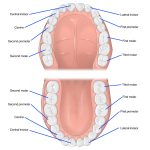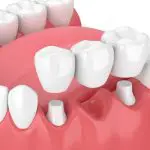Why Do Dogs Chatter Their Teeth? Understanding the Causes and Solutions
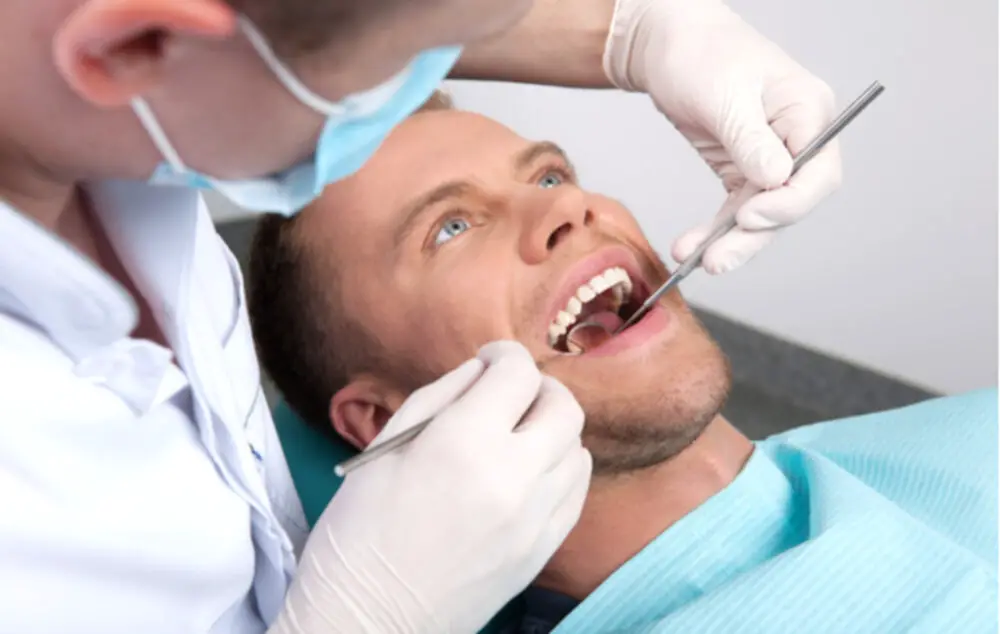
Dogs are known for their diverse and peculiar behaviors that often leave their owners mystified. One such behavior that often confounds dog owners is teeth chattering. If you’ve ever witnessed your dog chattering their teeth, you may be wondering what it means and if there is cause for concern. Teeth chattering is a common behavior among dogs, and understanding its causes and solutions can help you better care for your furry friend. Teeth chattering is a unique behavior that can manifest in different ways, depending on the dog. Some dogs may chatter their teeth rapidly, while others may do it slowly and intermittently. In most cases, teeth chattering is a harmless behavior that dogs engage in for various reasons. However, in some instances, it can be an indication of an underlying health issue that requires veterinary attention. As a responsible dog owner, understanding the different causes of teeth chattering and the appropriate solutions can help you keep your dog happy and healthy.
Teeth chattering in dogs refers to the rapid clattering of a dog’s teeth, which produces a distinct rattling sound. This behavior is often accompanied by quivering or shivering and can be caused by a variety of factors, including anxiety, excitement, fear, or cold temperatures. While some dogs may chatter their teeth occasionally without any apparent cause, it is important to note that teeth chattering can also be a sign of underlying health issues, such as dental problems or neurological disorders. Understanding the causes of teeth chattering in dogs is essential for providing appropriate treatment and ensuring the well-being of our furry friends.
Understanding the causes behind why dogs chatter their teeth is crucial for several reasons. First and foremost, it helps pet owners identify if their furry friend is experiencing any discomfort or pain. Teeth chattering in dogs can be a sign of dental issues, such as tooth decay or gum disease. Secondly, knowing the causes can help pet owners take preventive measures to avoid future dental problems. For example, regular dental cleanings or providing dental chews can help keep a dog’s teeth healthy. Finally, understanding the causes can help pet owners provide the appropriate treatment to their dog if necessary. For instance, if the chattering is due to anxiety or excitement, providing calming remedies may be beneficial. Therefore, comprehending the reasons behind teeth chattering in dogs is essential for maintaining their overall health and well-being.
The article \Why Do Dogs Chatter Their Teeth? Understanding the Causes and Solutions\ is a comprehensive guide that explores the reasons behind the strange behavior of dogs grinding or chattering their teeth. The author explains that teeth chattering or grinding can be a sign of different emotions in dogs, such as anxiety, excitement, or pain. The article also covers various health issues that can lead to teeth chattering, such as dental problems or neurological disorders. Additionally, the author provides useful tips and solutions to help dog owners manage and prevent teeth chattering, including proper dental care, behavior modification, and medication. Overall, this insightful article offers valuable information to dog owners and helps them better understand their furry friends’ behavior.
Causes of Teeth Chattering in Dogs
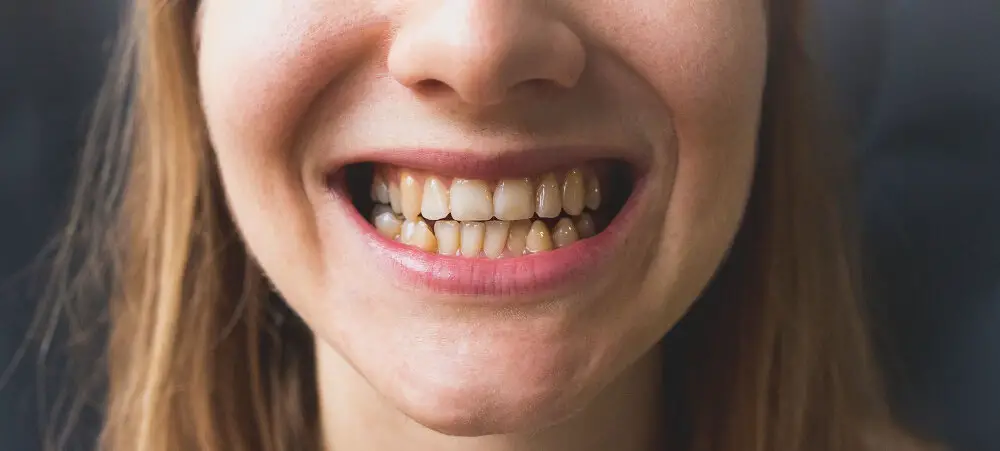
Teeth chattering in dogs can be an alarming sight for pet owners, but it is a common behavior that can be caused by various factors. One of the most common reasons for teeth chattering in dogs is excitement or anticipation. Dogs may chatter their teeth when they are excited or anxious about something, such as going for a walk, playing with a favorite toy, or seeing their owner after a long absence. This behavior is usually accompanied by other signs of excitement, such as wagging their tail, jumping up and down, and whining. In many cases, teeth chattering is a harmless behavior that does not require intervention. Another common cause of teeth chattering in dogs is dental problems. Dogs that have dental issues such as cavities, gum disease, or tooth abscesses may chatter their teeth as a way of dealing with the pain or discomfort. In some cases, dogs may also grind their teeth or rub their face against hard surfaces to alleviate the pain. If your dog is chattering their teeth frequently or seems to be in pain, it is important to take them to the vet for a dental checkup. Regular dental care, including brushing your dog’s teeth and providing dental chews or toys, can help prevent dental problems and reduce the risk of teeth chattering.
Cold or shivering is a natural response of the body to maintain its temperature, especially in colder environments. When dogs are exposed to cold temperatures, their body responds by contracting their muscles rapidly, which causes them to shiver or chatter their teeth. This mechanism generates heat, which helps to regulate their body temperature. However, shivering can also be a sign of an underlying medical condition or discomfort, so it’s essential to monitor the duration and intensity of a dog’s shivering. If your dog is shivering excessively or for extended periods, it’s important to provide them with a warm and comfortable environment or consult with a veterinarian to rule out any medical issues.
Anxiety or fear in dogs can manifest in several ways, including teeth chattering. Dogs may chatter their teeth when they feel nervous or stressed, and it can be a sign that they are experiencing discomfort or fear. It’s important to identify the root cause of the anxiety or fear and address it to help your dog feel more comfortable and secure. Some common reasons for anxiety or fear in dogs include changes in environment or routine, loud or sudden noises, unfamiliar people or animals, separation anxiety, and past traumatic experiences. By providing a safe and predictable environment, positive reinforcement training, and seeking professional help if needed, you can help your dog overcome their anxiety and live a happy and healthy life.
Pain or discomfort in dogs can manifest in various ways, including teeth chattering. This behavior is often a sign of stress or anxiety, but it can also indicate dental problems, jaw issues, or nerve damage. It’s crucial to identify the underlying cause of the discomfort and address it promptly to prevent further complications. Some dogs may require medication, while others may benefit from behavioral training or dental care. As responsible pet owners, we must pay attention to our furry friends’ subtle cues and seek professional help when necessary to ensure their physical and emotional well-being.
Excitement is a common emotion that dogs experience when they are anticipating something that they are looking forward to. It can be caused by a variety of things, such as the arrival of their owner, the prospect of going for a walk, or the sight of their favorite toy. When a dog becomes excited, they may exhibit a number of behaviors, such as wagging their tail, jumping up and down, or even chattering their teeth. While this behavior can be alarming for pet owners, it is actually quite common and can be easily addressed with proper training and attention. By understanding the causes and solutions for teeth chattering in dogs, pet owners can help their furry friends stay calm and happy during moments of excitement and anticipation.
Neurological issues can be a common cause of teeth chattering in dogs. This can include conditions such as seizures, epilepsy, or other neurological disorders. These conditions can cause involuntary muscle movements, including the muscles in the jaw, which can result in teeth chattering. If a dog is experiencing teeth chattering due to neurological issues, it is important to seek veterinary care promptly. The veterinarian may recommend a variety of treatments, including medications to manage seizures or other neurological symptoms, as well as lifestyle changes to help manage the underlying condition.
Dental problems are a common issue that dogs face, and it is essential for pet owners to pay attention to their furry friend’s dental health. Neglecting dental health can lead to various problems such as bad breath, gum disease, tooth decay, and even tooth loss. Dogs may also experience chattering teeth, which can be a sign of dental pain or discomfort. To prevent dental problems, owners should regularly brush their dog’s teeth, provide them with dental chews or bones, and schedule routine dental check-ups with their veterinarian. Proper dental care is crucial for a dog’s overall health and well-being.
Signs and Symptoms of Teeth Chattering in Dogs

Teeth chattering in dogs is a common behavior that pet owners often notice. It is a rapid movement of the jaw that produces a chattering sound, which is usually accompanied by quivering lips and shivering. The behavior can occur due to a variety of reasons, including cold weather, excitement, stress, anxiety, and medical conditions such as dental problems, pain, or neurological disorders. In some cases, teeth chattering in dogs can be a sign of a serious underlying health issue that requires immediate medical attention. Therefore, it is important for pet owners to understand the signs and symptoms of teeth chattering in dogs to determine the cause and seek appropriate treatment. One of the most common signs of teeth chattering in dogs is the chattering sound itself. It is usually a rapid and rhythmic movement of the jaw that produces a clicking or rattling sound. Other signs may include quivering lips, shivering, and an overall tense body posture. In some cases, dogs may also display other signs of anxiety, such as panting, pacing, or hiding. Additionally, teeth chattering in dogs can be accompanied by other symptoms, such as drooling, difficulty eating, or a change in appetite. If you notice any of these signs in your dog, it is important to consult with a veterinarian to determine the underlying cause and appropriate treatment.
Audible chattering is a common behavior that dogs display when they are feeling excited or anxious. This behavior is characterized by a rapid movement of the jaw, which produces a chattering or clicking sound. There are various reasons why dogs may exhibit this behavior, including stress, fear, or simply being overstimulated. In some cases, audible chattering can also be a sign of dental issues or pain. As a pet owner, it is important to understand the causes of audible chattering in dogs so that you may take appropriate measures to address the underlying issue. This may involve providing your furry friend with more exercise, training, or dental care. With patience and understanding, you can help your dog overcome this behavior and live a happier, healthier life.
Visible trembling or shaking in dogs is a common symptom that can be caused by a variety of reasons. It could be a sign of fear, excitement, anxiety, or even a medical condition. When a dog is trembling or shaking, it is usually noticeable in their body language and behavior, such as their tail tucked between their legs, flattened ears, or cowering. It is important to identify the underlying cause of the trembling or shaking in order to provide the appropriate solution. It is also important to provide the dog with a safe and comfortable environment to help reduce their stress levels. If the trembling or shaking persists or is accompanied by other symptoms, it is advisable to seek professional help from a veterinarian.
Increased heart rate is a physiological response that occurs when a dog is under stress or excitement. This can be triggered by a variety of factors such as fear, anxiety, or even excitement from playing or exercising. When a dog’s heart rate increases, it pumps blood more quickly throughout the body, delivering oxygen and nutrients to the organs and muscles. However, if a dog’s heart rate remains elevated for an extended period of time, it can lead to health issues such as high blood pressure and heart disease. Therefore, it is important to monitor a dog’s heart rate and manage their stress levels to ensure their overall health and well-being.
Excessive drooling or panting in dogs can be a sign of various underlying health issues. It is important to observe your dog’s behavior and take note of any changes in their drooling or panting patterns. Some common causes of excessive drooling or panting in dogs include anxiety, heat stroke, dental problems, and respiratory or gastrointestinal issues. If you notice your dog drooling excessively or panting heavily, it is best to consult with a veterinarian to determine the cause and appropriate treatment. Ignoring these symptoms can lead to serious health problems and discomfort for your furry friend.
Aggression is a common behavioral change in dogs that can be caused by various factors. It can be triggered by fear, anxiety, territorialism, or even pain. Often, aggressive behavior is a result of a lack of socialization, improper training, or genetics. Some dogs may become aggressive towards people or other animals, while others may exhibit aggression towards objects or situations. It is crucial to identify the root cause of aggression and address it appropriately. Seeking professional help from a veterinarian or a dog trainer can help owners understand how to manage and prevent aggressive behavior in their pets.
Treatments and Solutions for Teeth Chattering in Dogs

Teeth chattering in dogs is a common behavior that can be caused by a variety of factors, including excitement, anxiety, or dental problems. The treatment and solutions for teeth chattering in dogs depend on the underlying cause. If the chattering is caused by excitement, owners can try to distract their dogs with toys or treats to redirect their focus. Additionally, owners can try to desensitize their dogs to the stimuli that trigger teeth chattering, such as loud noises or unfamiliar people. This can be achieved through gradual exposure and positive reinforcement. If the teeth chattering in dogs is caused by anxiety, owners can try to address the underlying source of the anxiety. This may involve modifying the dog’s environment or routine to reduce stress levels. Additionally, owners can try behavioral training techniques to help their dogs cope with anxiety-inducing situations. In some cases, medication may be prescribed by a veterinarian to help manage the dog’s anxiety. It is important for owners to work closely with their veterinarian to determine the best course of treatment for their dog’s anxiety. If dental problems are the cause of teeth chattering in dogs, treatment may involve a visit to the veterinarian for a dental exam and cleaning. The veterinarian may also recommend a diet change or supplements to improve dental health. In some cases, dental surgery may be necessary to address underlying dental issues that are causing teeth chattering in dogs. Owners can also help maintain their dog’s dental health through regular teeth brushing and dental hygiene care at home. By addressing the underlying cause of teeth chattering in dogs and following an appropriate treatment plan, owners can help their furry friends live happy and healthy lives.
Addressing the underlying causes of a dog’s teeth chattering is crucial to finding a solution to this behavior. One of the main reasons why dogs chatter their teeth is due to anxiety or fear. In this case, it is essential to identify the root cause of the anxiety and work towards reducing it. This can include behavior modification techniques, training, or medication prescribed by a veterinarian. Another possible cause of teeth chattering is oral discomfort, such as dental problems or sensitivity. Regular dental checkups and proper oral hygiene can help prevent this issue. Finally, teeth chattering can also be a sign of excitement or anticipation, which may not require any specific intervention. By addressing the underlying cause of teeth chattering in dogs, it is possible to alleviate the behavior and ensure the dog’s overall well-being.
Providing warmth and comfort to your dog can help reduce teeth chattering. Dogs may chatter their teeth when they are cold or anxious. By providing a warm and cozy environment, your dog can feel more relaxed and comfortable, reducing their need to chatter their teeth. You can provide warmth by giving your dog a warm blanket or sweater to wear, turning up the heat in your home, or providing a heated bed. Additionally, spending quality time with your dog, such as cuddling and petting, can also provide comfort and reduce anxiety. By taking these steps, you can provide your dog with a warm and comforting environment that can help reduce their teeth chattering.
Behavioral training and desensitization are essential techniques to help dogs overcome their fears and anxieties, including teeth chattering. Behavioral training involves teaching dogs new behaviors and reinforcing positive ones, while desensitization involves gradually exposing dogs to the stimulus that triggers their fear or anxiety until they become more comfortable with it. In the case of teeth chattering, dogs may need to be desensitized to certain sounds, such as fireworks or thunder, and taught new coping mechanisms, such as relaxation techniques or distraction. These techniques require patience, consistency, and a deep understanding of the individual dog’s needs and personality, but they can ultimately help dogs live happier, healthier lives free from the stress and discomfort of teeth chattering and other anxiety-related behaviors.
Medical treatment for dental issues in dogs usually involves a thorough oral examination to identify any signs of dental disease or tooth decay. In some cases, antibiotics, anti-inflammatory medications, or pain relievers may be prescribed to treat infections or reduce pain and inflammation. More severe cases may require dental surgery, such as tooth extraction or root canal therapy. On the other hand, neurological issues may require a more extensive diagnostic evaluation to identify the underlying cause of the problem. Treatment options may include medications to manage symptoms, surgery to remove tumors or lesions, or rehabilitative therapies to improve coordination and mobility. In any case, it is important to seek prompt medical attention if your dog is exhibiting unusual behaviors, such as teeth chattering, as these may be a sign of an underlying medical condition.
Prevention and Care for Teeth Chattering in Dogs
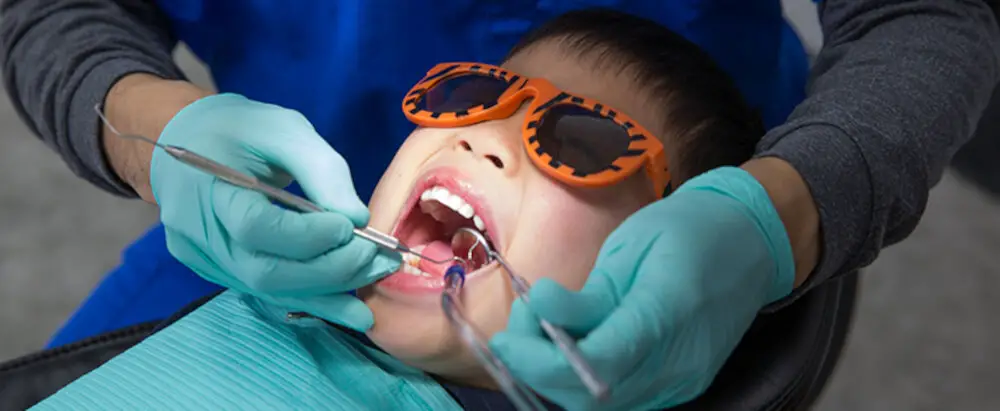
Teeth chattering in dogs is a common problem that can be caused by various reasons. One of the main causes of teeth chattering is dental issues. It is essential to take care of your dog’s teeth as dental problems can cause your dog to be in a lot of pain and discomfort. Regular brushing of your dog’s teeth, providing it with dental chews, and scheduling regular dental check-ups with a veterinarian can greatly reduce the likelihood of dental issues that lead to teeth chattering. Additionally, providing your dog with a balanced diet that is rich in vitamins and minerals can also improve its oral health and prevent teeth chattering. Another cause of teeth chattering in dogs is anxiety or excitement. Dogs may chatter their teeth when they are anxious or excited, which is a sign of nervousness. To prevent teeth chattering caused by anxiety, you can provide your dog with a safe space where it can relax and feel comfortable. You can also try calming techniques such as playing calming music or giving your dog a massage. Additionally, ensuring that your dog gets enough exercise and socialization can help reduce anxiety levels and prevent teeth chattering. If the problem persists, it is important to consult with a veterinarian to identify and treat the underlying cause of the anxiety.
Regular dental checkups are crucial for the overall health and well-being of your furry friend. Just like humans, dogs require regular dental care to prevent various oral health problems such as gum disease, tooth decay, and bad breath. During a dental checkup, a veterinarian will examine your dog’s teeth, gums, and mouth for any signs of dental issues. They may also recommend a professional dental cleaning if necessary to remove any tartar buildup. Regular dental checkups not only prevent dental problems but also help detect any underlying health issues that may affect your dog’s overall health. Therefore, it is essential to schedule regular dental checkups for your dog to maintain their oral health and overall well-being.
Proper socialization and training are crucial for dogs to lead happy and well-adjusted lives. Socialization involves exposing a puppy to various people, animals, and environments so that they can learn to adapt and feel comfortable in different situations. Training, on the other hand, teaches a dog how to behave appropriately and respond to commands. By providing positive reinforcement and consistent training, owners can help their dogs develop good habits and prevent unwanted behaviors, such as teeth chattering. A well-socialized and trained dog will be more confident, obedient, and have a stronger bond with their owner. It is essential to start socialization and training early in a dog’s life to ensure they have the best chance of success.
Providing a comfortable and safe environment for our furry companions is crucial for their overall well-being. It’s important to ensure that their living space is clean, spacious, and free of any hazards that may pose a threat to their safety. This includes keeping sharp objects out of their reach, securing cabinets and drawers, and removing any toxic substances from their environment. Additionally, providing comfortable bedding, toys, and access to fresh water and food are essential to their happiness and comfort. A relaxed and secure environment can also help reduce stress and anxiety, which can play a significant role in causing teeth chattering in dogs. By prioritizing their safety and comfort, we can help our furry friends live happy and healthy lives.
It is crucial to monitor our dogs for signs of discomfort or anxiety, especially if they are chattering their teeth. Some common signs to look out for include restlessness, panting, drooling, and a change in body language. If your dog is exhibiting any of these behaviors, it is important to determine the cause and address it as soon as possible. This could involve removing them from a stressful situation, providing them with a comfortable and safe environment, or seeking advice from a veterinarian or animal behaviorist. It is also important to remember that each dog is unique, so what may cause anxiety for one dog may not affect another. Therefore, it is essential to pay close attention to your dog’s behavior and respond accordingly to ensure their health and well-being.
Dogs chattering their teeth can be a concerning behavior for pet owners. The causes of this behavior can range from physical discomfort or pain to emotional stress or anxiety. Some common physical causes include dental issues, jaw problems, or muscle spasms. Emotional causes may include fear, excitement, or frustration. Symptoms of teeth chattering can include trembling, whining, or panting. Treatment options depend on the underlying cause of the behavior. Addressing any physical discomfort or pain through a visit to the vet is essential. For emotional causes, behavior modification techniques or medications may be recommended. It is essential to identify the cause of teeth chattering to ensure proper treatment and alleviate any discomfort or stress experienced by the dog.
It is crucial to seek veterinary care for our furry friends as soon as we notice any unusual behavior or symptoms. When it comes to teeth chattering in dogs, it could be an indication of pain, anxiety, or a dental issue. Neglecting to address these issues can lead to more severe health problems that are costly and difficult to treat. A qualified veterinarian can diagnose the underlying cause of the teeth chattering and provide appropriate treatment. Additionally, regular check-ups and dental cleanings can prevent dental diseases and maintain the overall health and well-being of our beloved pets. Seeking veterinary care is a responsible and necessary action that every pet owner should take to ensure their pet’s health and happiness.
In conclusion, teeth chattering in dogs can have various underlying causes, including excitement, anxiety, fear, pain, and dental problems. As a responsible dog owner, it is crucial to observe and identify the triggers that cause your dog’s teeth chattering and seek appropriate veterinary care if necessary. Regular dental checkups and oral hygiene practices can also prevent dental problems that may lead to teeth chattering. Additionally, training and socializing your dog can help reduce anxiety and fear, promoting a happier and healthier life for your furry friend. Overall, understanding and addressing the causes of teeth chattering can improve your dog’s quality of life and strengthen the bond between you and your loyal companion.
Conclusion
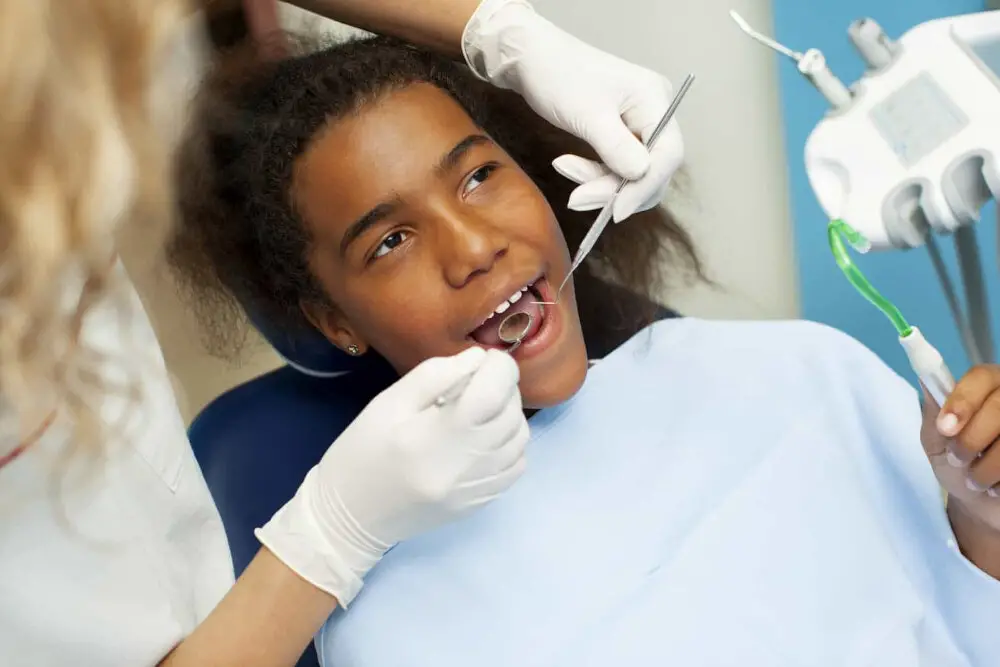
In conclusion, understanding why dogs chatter their teeth is crucial for pet owners to ensure their furry friends are happy, healthy, and comfortable. While some dogs may chatter their teeth out of excitement or anxiety, others may require medical attention due to dental issues or pain. Therefore, it is essential to observe the behavior of our dogs and seek professional help if needed. Additionally, providing our dogs with proper dental care, a balanced diet, and addressing any underlying medical conditions can go a long way in preventing teeth chattering in dogs. Overall, by being attentive and proactive, we can ensure our dogs lead happy and comfortable lives.





